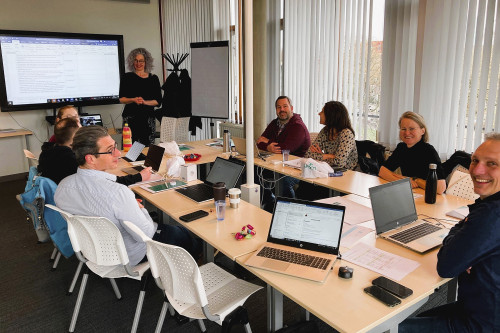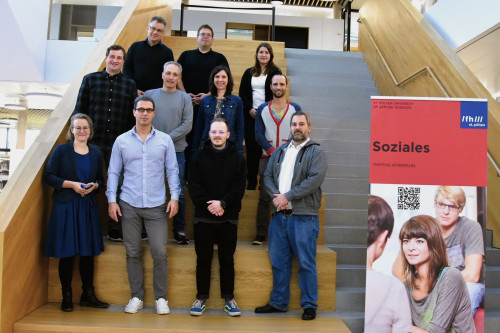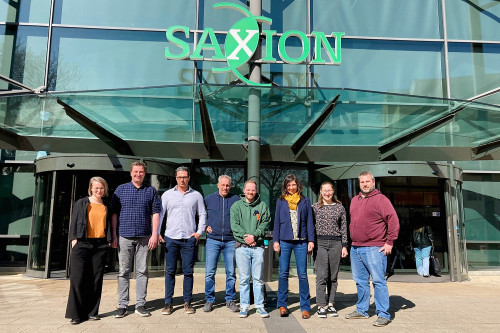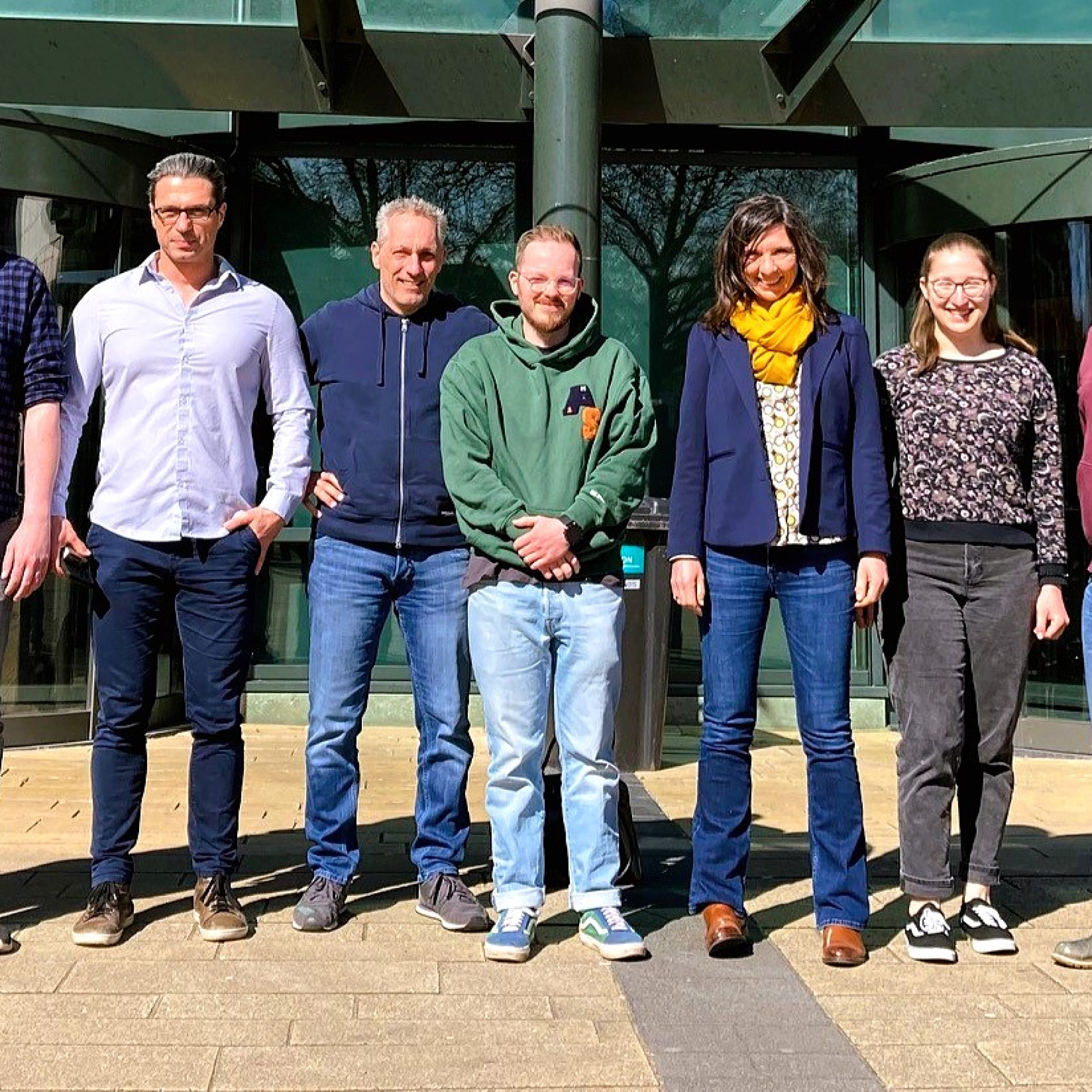
International Project TransSoDia Advanced Digital and Transnational Social Work Education
How can teaching and education in the field of social diagnostics be enhanced? This is the question an interdisciplinary team coming from three universities of applied sciences has dedicated itself to in the project TransSoDia, a joint initiative uniting E³UDRES² partners St. Pölten University of Applied Sciences (Austria), Saxion University of Applied Sciences (Netherlands) as well as the Kiel University of Applied Sciences (Germany). After three years of collaboration, TransSoDia, deriving its name from Transnational and Digital Learning and Teaching in Cooperative Social Diagnostics, is now coming to a close, with the team looking back on a multitude of useful tools they jointly developed during their collaboration.
Improving diagnostic tools for social work
The project, funded by the Erasmus+ programme of the European Union, brought together an interdisciplinary team with individuals from the fields of social work and data visualisation. The St. Pölten University of Applied Sciences was responsible for the coordination of the project and also played a key role in the technical development and content work. Kiel University of Applied Sciences and Saxion University of Applied Sciences actively contributed to all the products developed. Kiel took the lead in developing the video and podcast production, while Saxion coordinated the training activities. The three partners set out to achieve one central goal: Raising diagnostic tools used in social work as well as the teaching of social diagnostics to the next level, adapting them to the current requirements of a digitalised and international application practice. To achieve this, the team (further) developed innovative, collaborative social diagnostic tools to improve interventions and outcomes for vulnerable and marginalised populations living in difficult conditions.
"Previously existing software solutions, titled easyNWK and easyBiograph, faced significant limitations - they for example lacked flexibility in terms of visualization or analysis options, were outdated, and incompatible with mobile devices. TransSoDia aimed to develop user-friendly, up-to-date, and accessible digital solutions that empower both students and professionals in the field, fixing the above-mentioned limitations", explains Christina Engel-Unterberger, leading the project team at the St. Pölten UAS. Within the past three years, the team behind TransSoDia managed to bring the existing software solutions up to speed, enhancing their usability and functionality. Now, they are excited to show that they have been working on: The improved version of easyNWK allows for the cooperative creation and evaluation of egocentric networks. The egocentric network map is used to record and display a person's social relationships. Successful everyday life, subjective well-being, health and quality of life are significantly influenced by social relationships and the social support experienced. The updated version of easyBiograph is now available to users as a web-based application that allows them to visualise a person's life course. Events and phases of the client's family, home, education, work, health and support biography are noted along a multidimensional timeline.
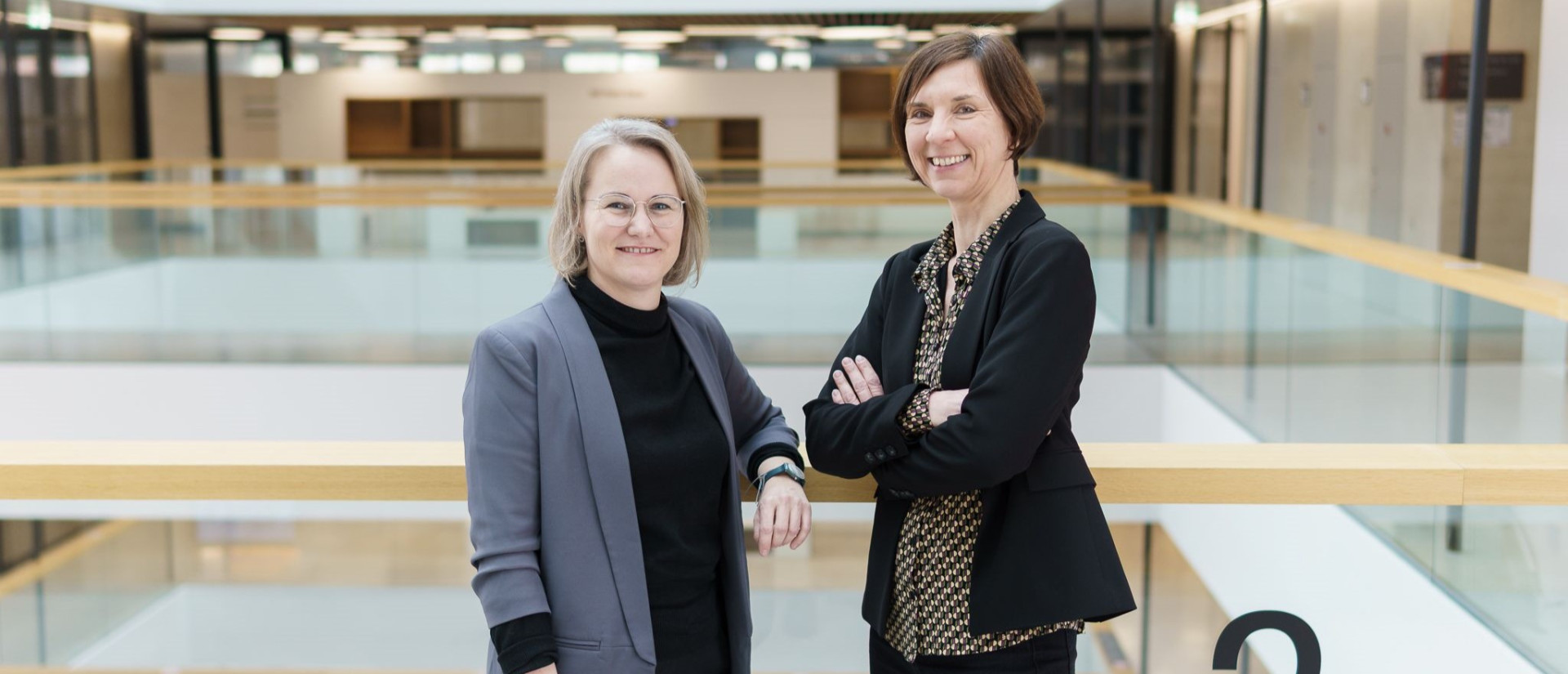
Christina Engel-Unterberger and Karin Goger coordinated TransSoDia at the St. Pölten University of Applied Sciences. Picture: Christoph Böhm
Video tutorials, podcasts and more
For both tools, the TransSoDia team also developed user manuals. Both the tools and the manuals are available in German and English. In parallel to the technical development of the easyNWK and easyBiograph web apps, extensive Open Educational Resources (OER) were created. These include video tutorials, podcasts with experts, as well as specialised manuals and guidelines for the didactic integration of the tools into teaching as well as literature lists and specialist texts for theoretical consolidation.
A central element of TransSoDia was the participatory development approach: Students and social work professionals were actively involved throughout the entire development process. Interdisciplinary cooperation with computer scientists ensured that the software met both technical and user-specific requirements. By integrating feedback into the development process, TransSoDia ensured that its tools are both evidence-based and practical for real-world applications.
With the project coming to a close, the attention towards TransSoDia remains strong: The innovative collaboration in TransSoDia has not gone unnoticed, as it has been now submitted for the Ars Docendi Prize for Excellence in Higher Education, acknowledging its contribution to advancing social work education through digital transformation and international collaboration. Regardless of the outcome, the team is pleased to have created a valuable contribution to the field of social work.
Encouraging innovation through EU support
TransSoDia was funded under the Erasmus+ programme of the European Union within the framework of Key Action 2: Cooperation Partnerships. This funding line supports collaborative projects that aim to develop innovative practices, strengthen cooperation between institutions and enhance the quality of education and training across Europe. The success of TransSoDia demonstrates how this funding can help higher education institutions create tangible and transferable outputs that address pressing societal needs. The project team encourages other academic and professional actors to explore Erasmus+ as an opportunity to co-create solutions for education and practice – especially in areas where digitalisation, inclusion and internationalisation intersect.
